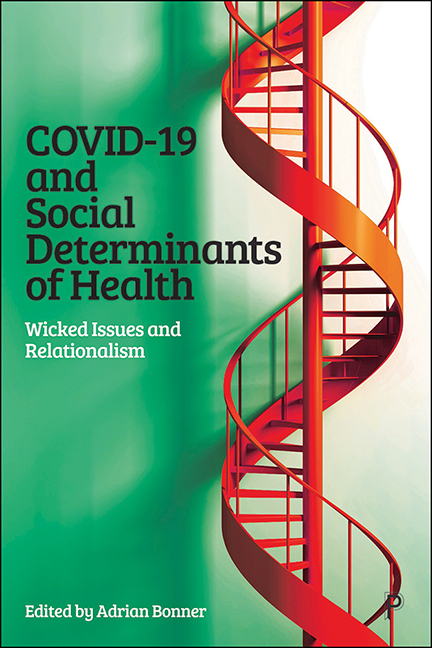Book contents
- Frontmatter
- Miscellaneous Frontmatter
- Contents
- List of figures and tables
- Notes on contributors
- Foreword
- Introduction
- Part I Wicked issues and relationalism
- Part II Regionalism and geopolitical environments
- Part III Public sector, COVID-19 and culture change
- Part IV The third sector
- Part V The case for relationalism
- Part VI Engagement and proposed changes
- Conclusion
- Appendix The Centre for Partnering
- Index
14 - Volunteering and small charities
Published online by Cambridge University Press: 18 January 2024
- Frontmatter
- Miscellaneous Frontmatter
- Contents
- List of figures and tables
- Notes on contributors
- Foreword
- Introduction
- Part I Wicked issues and relationalism
- Part II Regionalism and geopolitical environments
- Part III Public sector, COVID-19 and culture change
- Part IV The third sector
- Part V The case for relationalism
- Part VI Engagement and proposed changes
- Conclusion
- Appendix The Centre for Partnering
- Index
Summary
Introduction
Emerging evidence from the voluntary sector in the UK provides an insight into the devastating impact of COVID-19 on charities’ finances, staff, volunteers and service provision (Institute of Fundraising, 2020; Charity Commission, 2021). At the same time, many charities are reporting significant increases in demand for their services, with domestic violence, animal welfare, mental health and wellbeing, and homelessness charities being particularly affected in what has been described as a ‘perfect storm’ for the sector (Bradbury, 2020). Most charities expect ongoing challenges over the coming years in fundraising and of not being able to return to normal levels of service provision (Institute of Fundraising, 2020). But it is smaller charities that are really feeling the brunt of these pressures. More than 90 per cent of charities registered in England and Wales have an income of under £1 million. Used to surviving on nominal amounts of funding pre-pandemic, the demand for connection and support services at the local level and demand for specialist health support at a national level (particularly, for example, for people with rare health conditions) has definitely fuelled further demand.
We see this particularly in charities that play a vital local role in addressing health and social care need and the social determinants of health, through local service provision, but also importantly as engines of human and social capital (O’Leary and Fox, 2020). Disadvantaged communities – already disproportionately affected by the pandemic – face a longer and more challenging recovery because of the likely loss of local charities. This chapter has three objectives. Firstly, to set out the evidence around how charities – particularly through volunteering – play a significant role in addressing social determinants. Secondly, to review the emerging evidence of the impact of the pandemic on charities, focused very much on the resulting effect volunteering and also on the social determinants of health. Thirdly, the chapter will make the case for significant changes in the way the central and local government uses its commissioning and procurement functions to ensure that the voluntary sector is not totally decimated by the pandemic.
- Type
- Chapter
- Information
- COVID-19 and Social Determinants of HealthWicked Issues and Relationalism, pp. 258 - 267Publisher: Bristol University PressPrint publication year: 2023



